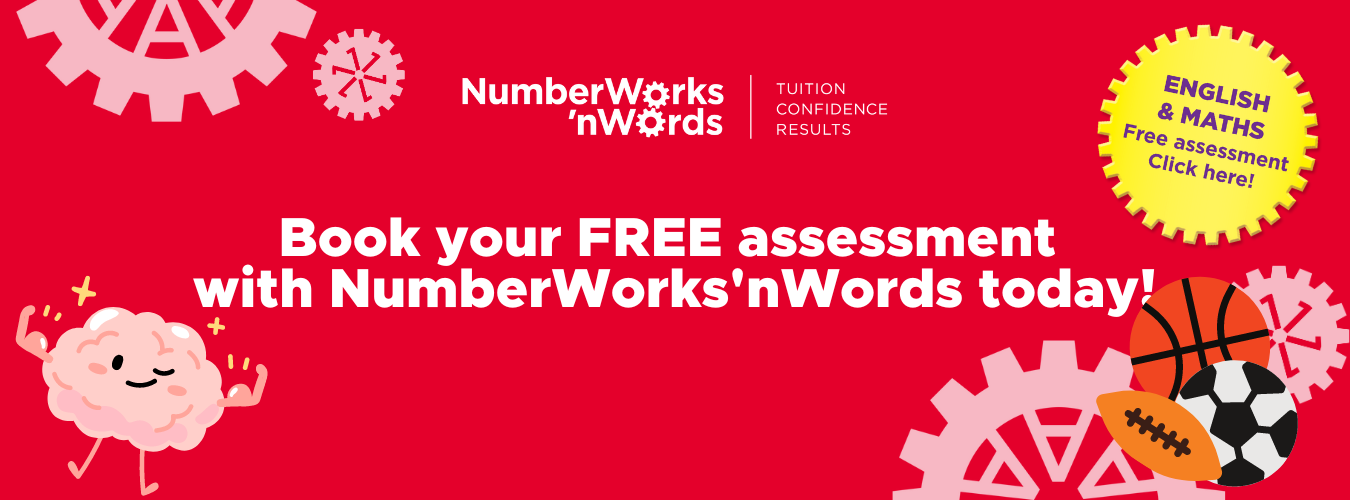The Connection Between Physical Activity and Cognitive Function

In the hustle and bustle of our daily lives, it's easy to prioritise physical health over cognitive well-being. However, by investing in cognitive health, you not only help your physical well-being but also sharpen your mind.
In this blog, we'll delve into the fascinating relationship between physical activity and cognitive function, exploring how movement can boost brainpower and enhance overall mental acuity.
Understanding Cognitive Function:
Before diving into the connection with physical activity, let's grasp what cognitive function entails. It's the mental processes that enable us to acquire knowledge, solve problems, make decisions, and remember information. Essentially, cognitive function encompasses everything from memory and attention to reasoning and creativity. Needless to say, it's crucial for navigating the complexities of everyday life.
More Than Just a Workout:
Physical activity isn't just about breaking a sweat; it's a cornerstone of holistic well-being. From brisk walks to netball and athletics, there's a range of activities to choose from. While it's undeniable that exercise strengthens muscles, improves cardiovascular health, and boosts endurance, its impact on mental well-being is equally profound.
Studies have shown that physical activity can alleviate symptoms of stress, anxiety, and depression by triggering the release of endorphins, the body's natural mood elevators. Moreover, the sense of accomplishment and empowerment that accompanies conquering physical challenges can foster resilience and self-confidence, enriching our children’s overall quality of life.
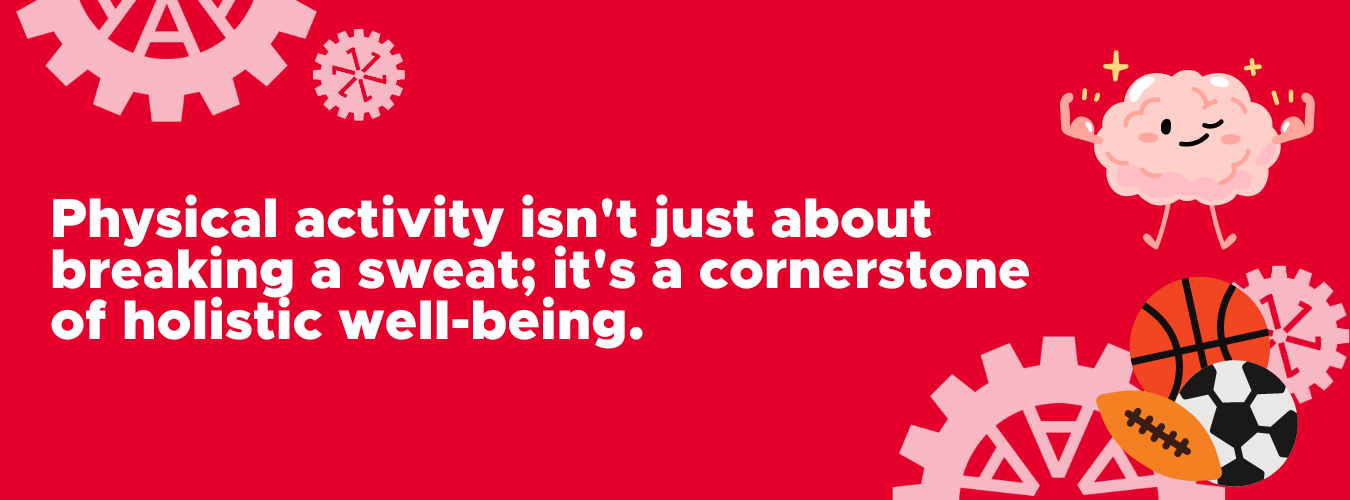
Physical activity catalyses cognitive enhancement. Whether your children are navigating a hiking trail, mastering a new dance routine, or honing their skills on the basketball court, their brains are constantly engaged in processing information, making split-second decisions, and coordinating movements.
This cognitive stimulation not only sharpens their mental acuity but also strengthens neural connections, laying the groundwork for improved memory, attention, and problem-solving skills. By treating their bodies to regular doses of movement, we're also treating their brains to a workout, priming them for peak performance in all aspects of life.
How Physical Activity Boosts Cognitive Function:
Countless studies have revealed the profound impact of physical activity on cognitive function. Whether it's jogging around the block or hitting the gym, exercise has been shown to enhance memory, improve attention span, and even bolster decision-making skills.
But how does it work? Physical activity boosts blood flow to the brain, stimulating the release of neurotransmitters, and promoting the growth of new brain cells, all of which contribute to sharper cognitive function.
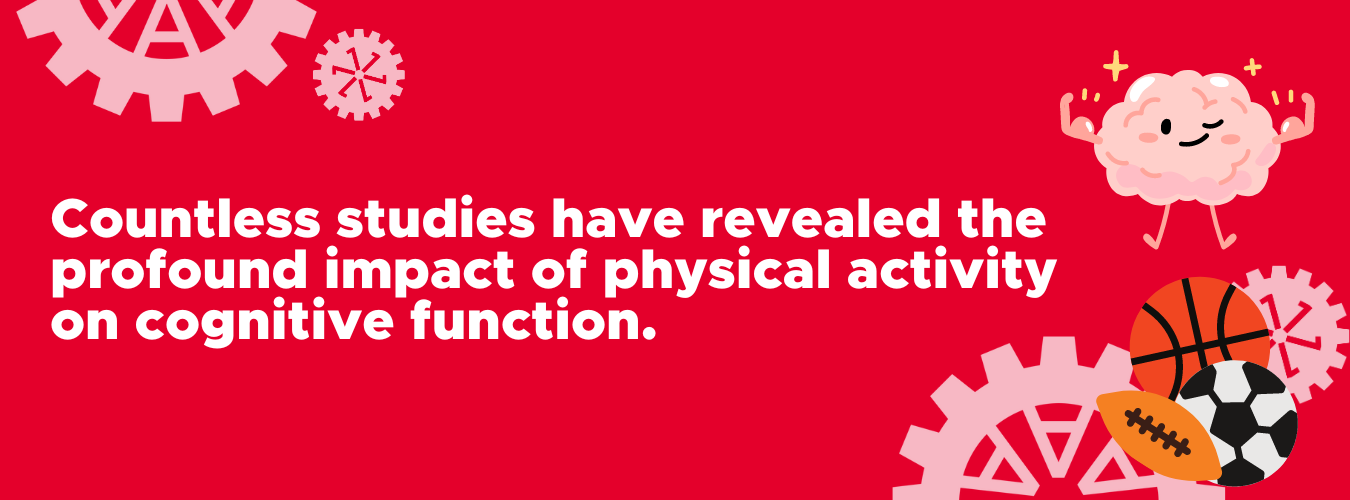
The Impact Across the Lifespan:
The benefits of physical activity aren't confined to a specific age group. From children to seniors, everyone stands to gain from staying active. In kids, physical activity fosters cognitive development and improves academic performance. Meanwhile, for older adults, it's a potent weapon against cognitive decline and dementia, helping to preserve memory and cognitive function well into the golden years.
Incorporating Physical Activity Into The Routine:
Now that we understand the science behind it, how can we incorporate more physical activity into our children's daily lives? The key is finding activities that they enjoy and that fit seamlessly into their routines. Whether it's taking the stairs instead of the elevator, going on family walks or joining a dance class or a football team, small changes can yield significant cognitive benefits over time.
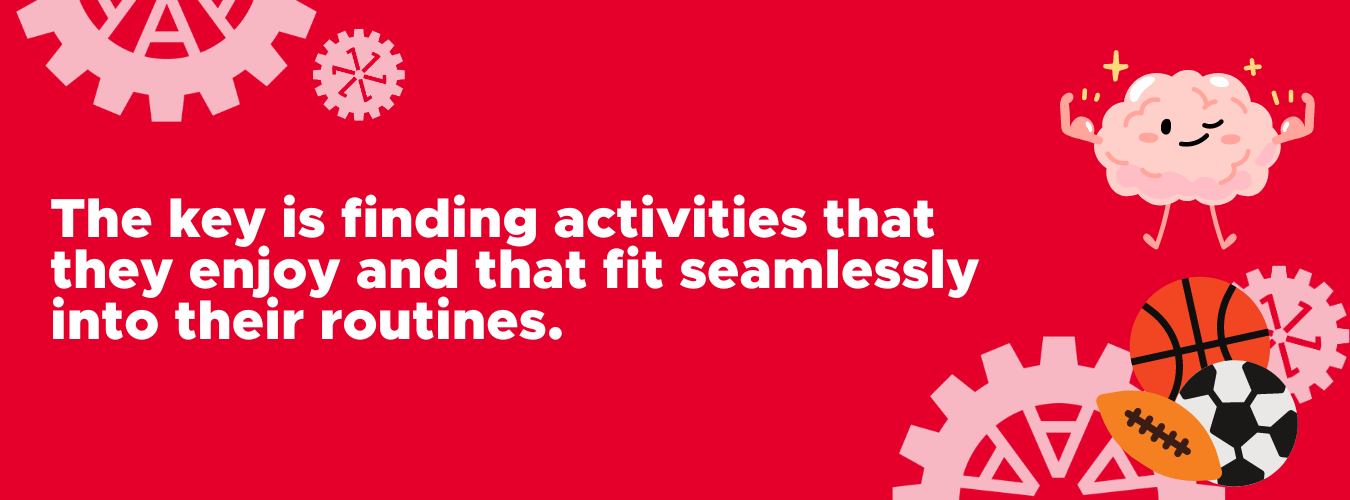
Exploring the Role of Nutrition in Cognitive Function:
While physical activity plays a significant role in enhancing cognitive function, we mustn't overlook the importance of nutrition. Just as the body requires fuel to perform at its best, the brain also relies on a balanced diet to function optimally.
Research suggests that certain nutrients, such as omega-3 fatty acids found in fish, antioxidants abundant in fruits and vegetables, and vitamins like B12 and folate, play crucial roles in supporting cognitive health. By nourishing their bodies with nutrient-rich foods, we provide their brains with the essential building blocks they need to thrive.
Creating an Environment Conducive to Physical Activity:
In addition to finding activities we enjoy, it's essential to create an environment that supports physical activity. This might mean setting aside dedicated time for exercise as a family. Simple changes can make it easier to incorporate physical activity into our daily routines.
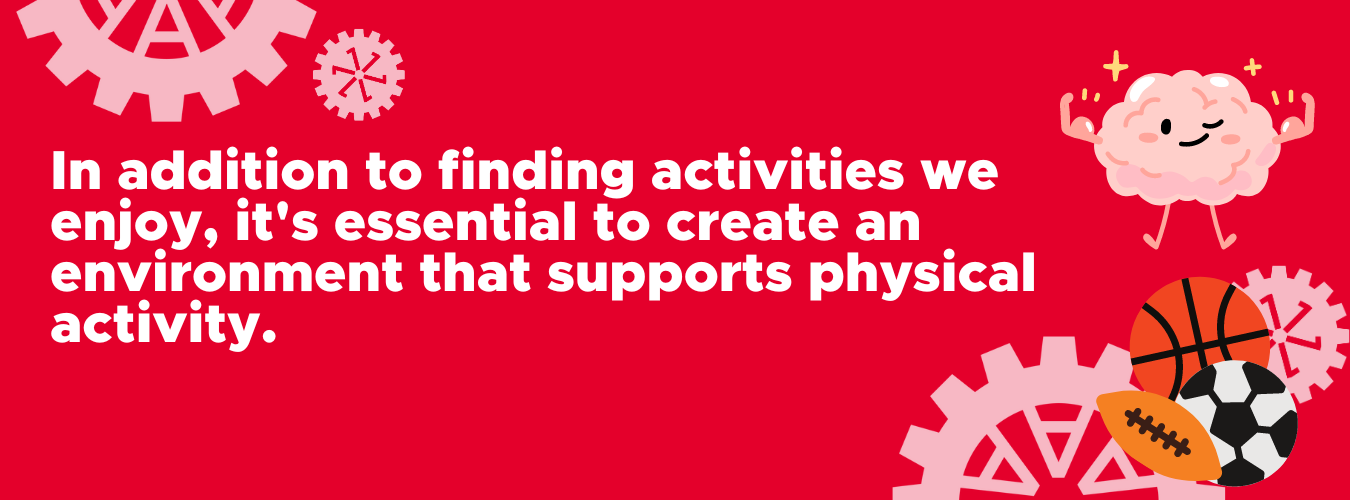
The relationship between physical activity and cognitive function is far more profound than we may have initially perceived. From the rush of endorphins during a sports game to the intricate mental calculations required on the tennis court, every movement we make contributes to our overall well-being, both physically and mentally.
However, the journey towards enhanced cognitive function doesn't end here. While physical activity serves as a potent tool in honing our mental faculties, acknowledging the significance of supplementary learning, such as after-school tutoring with NumberWorks'nWords, is equally crucial. Just as we challenge our bodies to strengthen through exercise, we must also challenge our minds to expand their capabilities through ongoing education.
